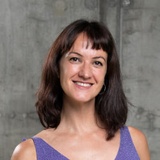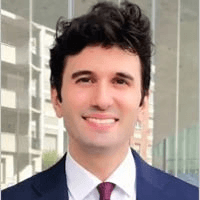- Home
- Ie In A Nutshell
- Faculty
- Irene Sánchez-andrea
Irene Sánchez-Andrea
Dr. Sanchez-Andrea holds a PhD in Microbiology from the Autonomous University of Madrid (UAM, Spain) which she defended with honours (cum laude and awarded with the Extraordinary Doctorate Prize of the Faculty of Sciences). During her PhD, she performed two internship in world-wide reference laboratories, staying 5 months in 2010 in the Laboratory for marine Microbiology in Bremen (Germany), and 6 months in 2011 in the Laboratory of Microbiology of the Netherlands. She mastered (culture-independent) molecular biology techniques based on 16S rRNA gene microbial communities profiling and culture-dependent techniques. As a result of her PhD, she proposed and validated a geomicrobiological model of the functioning of S, Fe, C and N cycles on the anaerobic sediments of Tinto river, an extreme acidic environment. She pioneeringly showed the complexity of the system in contradiction with the relative simplicity observed in the water column. She also demonstrated successfully the application of native Tinto river microbiota to remediate mine drainage water coupled to wastewater. Then, she received a NASA Planetary Biology Internship award to work on microbial electrosynthesis in the laboratory of Prof. Kenneth Nealson in the University of South California, in Los Angeles.
In her three consecutive a Post-Doctoral positions (2012-2017) at the Laboratory of Microbiology of the University of Wageningen (Netherlands) she expanded her knowledge on the enrichment, isolation and characterization of microbes (with focus on specialized anaerobic techniques), and in physiology and biochemistry. She became an independent Principal Investigator (PI) leading the sulfur cycle group, which focuses on the study of microorganisms related with the sulfur cycle, with a special interest in acidophiles and their application to biotechnological processes. As so, in 2017, she became Assistant Professor (UD2) and one year afterwards, she was promoted to UD1 based on merits.
By 2023, she published 63 research articles being the first author of 14, last author of 24 and corresponding author of 27, publishing in top journals as Science, Nature Communications, etc. Her research on acidophilic environments linked with mining activities resulted in the discovery of 4 novel genera and 3 novel species which are key microbial players in attenuation processes with application for bioremediation. The famous video channel VICE Motherboard featured her Research in a documentary1 (see link) with further publication in Tweeter, Instagram and Facebook. She aims to reveal the molecular mechanisms by which acidophiles withstand extreme conditions by applying a wide array of omics techniques (meta)genomics, transcriptomics and proteomics, as well as biochemical characterization of enzymes. She has discovered novel pathways in the nitrogen, sulfur and carbon cycles. Worth of special mention is her discovery of the 7th pathway for CO2 fixation, the glycine reductive pathway, in the sulfate reducer Desulfovibrio desulfuricans. Here, her role went from the idea generation, funding acquisition and laboratory experimentation. This text-book changing discovery received a lot of attention for what she got the Research award 2021 from Wageningen Fund Academy for the best paper of the year and was interviewed for journals AS Resource and Wageningen World.
She has secured funding being awarded with 5 research proposals as PI counting with an impressive international collaborative network of reknown scientists and in collaboration with companies. She has mentor in her group 3 technicians, 2 post-docs and 8 PhD students. Three of her PhD students already defended their doctoral thesis and they currently secured postdoctoral positions or fixed Jobs in reseach institutes or companies.
Dr. Sanchez-Andrea has being involved for 15 years in educational activities as coordinator and/or lecturer in Master and Bachelor’s courses. She also organizes the biannual EMBO Practical Course: Breathless microbes2 on anaerobic cultivation techniques and is keenly organizing conferences or symposiums such as Novel Anaerobes3. She has been active in dissemination activities such as writing a blog4 for Oxford University Press Blog making a case in support of implementing innovative bio-processes in the metal mining industry, or collaborating in books such as Afvalwater, hoe maken we de cirkel weer rond?5. Her expertise is reflected in editorial activities having edited several special issues for top journals such asCurrent Opinion in Biotechnology, Frontiers in Bioengineering and Biotechnology etc. Furthermore she has served as editorial board member of Applied and Environmental Microbiology, and Frontiers in Ecology and Evolution, Genetics and Microbiology. She is involved as reviewer of project proposals for the National Science Foundation of USA, Czech Science Foundation, etc.
She is a highly social person who enjoys team work and to build up a good working atmosphere. She enjoys outdoor activities such as hiking, cycling, and is passionate for Nature, fauna, flora and the little microbes which nobody see but they drive the biogeochemical cycles.
Academic Experience
• Assistant Professor at the Department of Environmental Sciences and Sustainability of IE University (Spain), Sep 2023 - Present
• Assistant Professor (UD-1) at the Laboratory of Microbiology of Wageningen University, Wageningen University (WUR, The Netherlands), 2018 - 2023
• Assistant Professor (UD-2) at the Laboratory of Microbiology of WUR (NL), 2016 - 2018
• PostDoc at the Laboratory of Microbiology of WUR (NL), 2013 - 2016
• PostDoc at the Laboratory of Microbiology of WUR (NL), 2013 - 2015
• PostDoc at the Laboratory of Microbiology of WUR (NL), 2012 - 2013
• Guest NASA researcher at the Laboratory of the University of Southern California (LA, USA), 2012
• Guest PhD student at Laboratory of Microbiology of WUR (NL),
• Guest PhD student at Max Planck Institute of Bremen (Germany), 2010
• PhD student at the Autonomous University of Madrid (Madrid, Spain), 2008 - 2012
Academic Background
• Ph.D. in Microbiology, Autonomous University of Madrid (UAM, Spain). “cum-laude” within 4 years and awarded with the prize for the best PhD thesis in biochemistry, 2012
• Master of Renewable Energy, Fuel Cells and Hydrogen, Menéndez Pelayo International University UIMP-CSIC (Spain), 2007
• Certificate of Pedagogic Aptitude (CAP), Complutense University of Madrid (Spain),2008
• Bachelor in Environmental Sciences, UAM, Spain, 2006
Selected Publications
• Sánchez-Andrea I*, van der Graaf C.M., Hornung B., Bale N.J. , Jarzembowska M., Sousa D.Z., Rijpstra I.C., Sinninghe Damsté3, Stams A.J.M (2022) “Acetate Degradation at low pH by the moderately acidophilic sulfate reducer Acididesulfobacillus acetoxydans gen. nov. sp. Nov”. Frontiers in Microbiology, 13
• Amils R., Escudero C., Oggerin M., Puente F., Arce A., Fernández D., Rodríguez N., García M., Sanz JL, Briones C., Sánchez-Román M., Gómez F., Leandro T., Moreno-Paz M., Prieto-Ballesteros O., Molina A., Tornos F., Sánchez-Andrea I., Timmis K., Pieper D.H , Parro V. (2022) “Coupled C, H, N, S and Fe biogeochemical cycles operating in the continental deep subsurface of the Iberian Pyrite Belt”. Environmental Microbiology. 25(2): 428 - 453
• Sánchez-Andrea I*, Guedes IA, Hornung B. , Boeren S. , Lawson CE, Sousa DZ, Claassens NJ Stams AJM (2020) “The reductive glycine pathway allows autotrophic growth of Desulfovibrio desulfuricans”. Nature Communications ,11
• Atashgahi S, Sánchez-Andrea I, Heipieper HJ, van der Meer Jr, Stams AJM, Smith H. (2018) “Prospects for harnessing biocide resistance for bioremediation and detoxification”. Science .360 (6390): 743-746
1https://www.vice.com/nl/article/jpjaq7/microbros-bacterien-een-toekomst-zonder-afval
2 https://meetings.embo.org/event/19-anaerobic-microbio
3 http://novelanaerobes.wordpress.com/eventsactivities/
4 http://blog.oup.com/2016/07/waste-into-resource-metal-mining/
5 https://www.biomaatschappij.nl/product/afvalwater/


